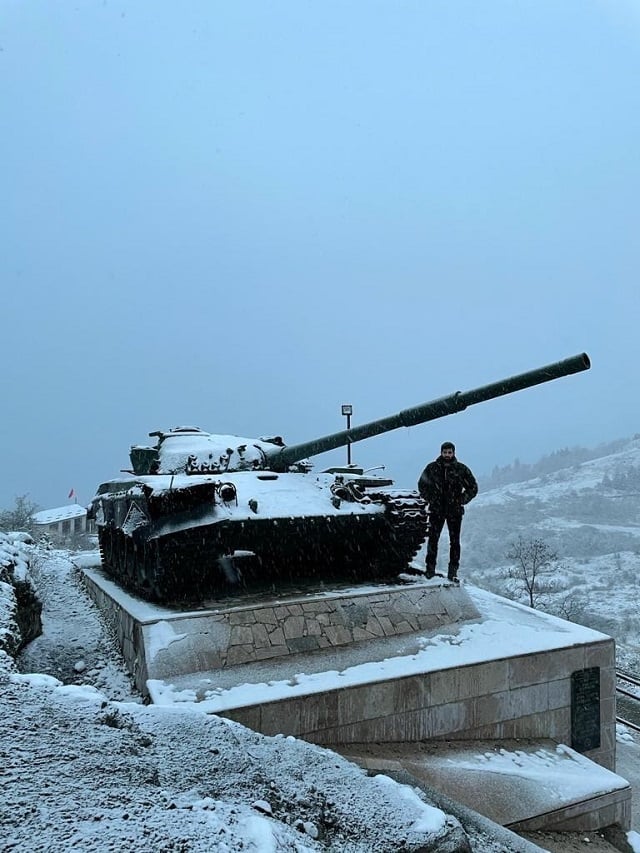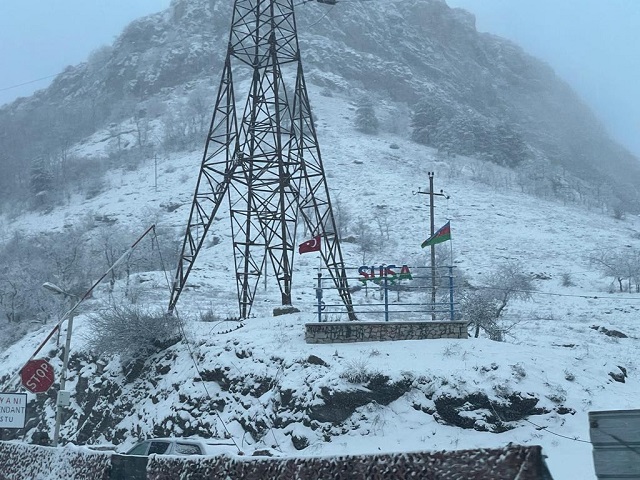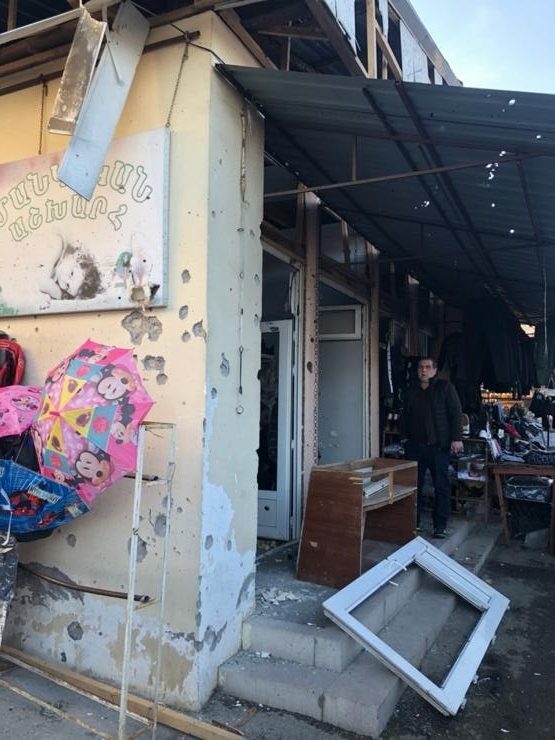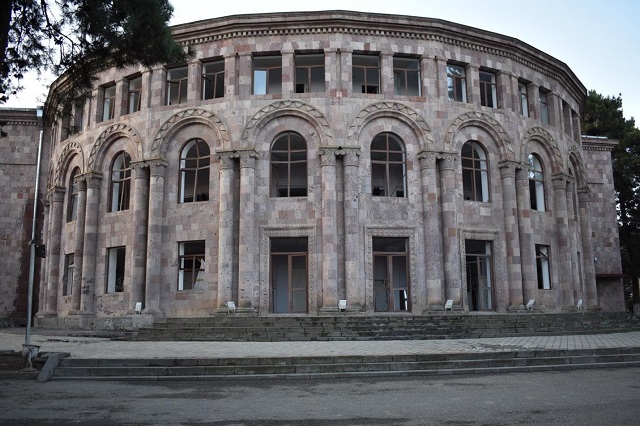The Armenian Weekly. Standing under the snow-covered victory tank along the Lachin-Stepanakert highway, we hear “Karabakh is Azerbaijan!” Just a few hundred yards away atop Shushi’s eastern fortress walls, stand three Azerbaijani soldiers. There is no one in sight but me and them. I stare up at them for 10 seconds and climb on top of the tank to take a picture. “Karabakh is Azerbaijan!” Again, I glance at the figures on the wall while light snow begins to fall and the low-lying clouds move in between us as they disappear in the silence.
Artsakh is in a dire state. There is no sugar-coating the situation when you are driving through the remaining mountains under “Armenian-control” dotted with Russian checkpoints. The Turkish and Azerbaijani flags set on the corners of the city of Shushi sign 10 yards from the road taunted us as we slowly worked our way through the staggered barricades of the Russian checkpoint in our Toyota Prado 4×4. “Ne govoryu po russki” (“I don’t speak Russian”). The Russian soldier did not speak English or Armenian, and so he posed a question to us in his native tongue which we did not understand. We respond “Stepanakert” to which he answers in Russian and waves us through. Davay.
Stepanakert seemed to have come a long way since its deserted streets and bomb sirens just a few weeks ago during the war. The streets were filled with cars. Many businesses were operational. Much of the damage from the war had been repaired or in the process of being repaired. The overall structural condition of the city was much better than I expected. We still found remnants of drone and missile damage throughout the city, but it was not 50-percent destroyed like some reports stated. Although the city seems back near capacity, we heard that many of the wealthier Stepanakert residents are in Armenia and renting their Artsakh homes to internally-displaced Hadrut and Shushi families. The city’s famous old outdoor market was severely damaged during the war, but it is now open with much of the damage from the war repaired or covered with sheets and blankets.
Walking down the frigid streets of Martuni surrounding the city’s opera house was like nothing I had ever seen with my eyes before. Blown up roofs, exploded windows and heavy shrapnel scarred nearly every house. The city’s opera house, which was modeled after the Yerevan Opera house, still did not have a single window replaced with twisted metal window frames left behind from the constant targeting of the city. For 44 days straight, the Azeri military undertook a campaign to indiscriminately bombard civilian structures. The rebuilding process was clearly moving slower than the capital, but there were construction workers repairing the roof of a multi-story building as we passed through the city square.
Read also
We visited the home belonging to the family of a 26-year-old local who had helped with the AYF Youth Corp Artsakh summer camps over the years. He, as well his younger brother, were still missing, presumed dead, since the war. The family treated us to a spread of fruits and coffee as we sat with the father discussing the situation with long, silent and tearful pauses. He was broken. The whole family was. Their only sons were gone. No burial. No answers.
Winter is in full swing and the snow has draped the visible wounds in many areas of the ancient Principality of Khachen. Though no one knows for certain what the future holds for the Republic of Artsakh, the story of our brothers and sisters there is not over. There is an old Armenian proverb which rings true to the people of this land, “the river does not forget its course, no matter the weather.”





























































